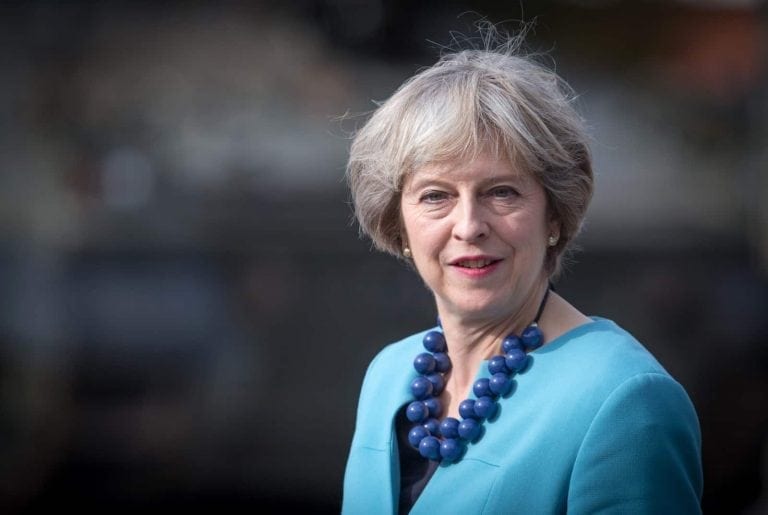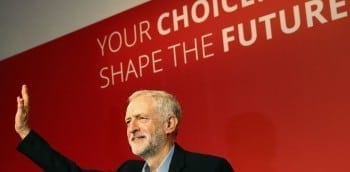BRITAIN JUNE 8TH 2017: REFLECTIONS ON AN EXTRAORDINARY ELECTION
What follows will not attempt to encompass the many facets of the political situation that has been opened up. It is intended rather to be the first of several pieces which will attempt to examine different aspects of the situation as it develops. The relevance to this of the grim, burned out shell of the tower block, that was home to some hundreds of the poorest and most ethnically diverse people in Britain, large and still uncounted numbers of whom perished in the inferno, will be fully dealt with later. For now, let it suffice to say that Grenfell Tower, situated in the Royal Borough of Kensington and Chelsea, which is the wealthiest of London’s boroughs boasting some of the most expensive residential properties in the western world, is in a neighbourhood ranked amongst the most deprived 10% in England. Tower blocks like this stand in close proximity to multi-million pound dwellings, many of which are kept empty by their absentee owners who sit on them as investments. Guardian journalist Polly Toynbee on June 17 commented on the grim burned-out shell “The tomb in the sky will be forever Theresa May’s monument.” She may well be right.

May: Hubris ushered in an astonishing defeat. Now she's a dead woman walking. (Click on image for best results)
The unnecessary June 8 election and its unexpected outcome.
[dropcap]P[/dropcap]rior to June 8 all the mainstream media were wrong in their expectations of the outcome of the election. All assumed that the Tories would win with a big majority. This was the view of all political parties except Labour- and most Labour MPs also believed it. This was not a view formed late on, just prior to the election. Party leader Jeremy Corbyn faced intense hostility and derision from nearly all the print media. Of the seven leading national dailies, five (The Times, Sun, Daily Mail, Daily Telegraph and the Daily Express) were, predictably, virulently anti-Labour and anti-Corbyn. These papers have a multi-million circulation – most of it dominated by Murdoch’s empire. Their weekend counterparts followed suit. Only the tabloid Daily Mirror and The Guardian were pro-Labour. But The Guardian was also very equivocal. Most of its columnists were at best lukewarm and at worst very hostile. The Labour leader, from the day of his election, had been subjected to the most intense hostility and character assassination. Most Labour MPs were severely critical of him and many were given to open criticism, claiming that he was a disaster and would lead Labour to electoral oblivion. Many were convinced that, however large their majorities, they would be unseated in any coming election. In so far as there was a consistent viewpoint among his Labour parliamentary opponents it amounted to the conviction that no-one committed to policies as “far left” as in their view Corbyn and a small coterie of his “loyalists” stood, had any chance of being taken seriously by the British electorate. MPs from all other parties except one (Caroline Lucas, the Green party’s only MP) concurred. There is little point in wasting time on the tirade of abuse to which Corbyn has been subjected by the billionaire corporate media. Every Labour leader (with the exception of Blair) has been treated in this way since the 1920s. And the corporate interests involved in this political propaganda enterprise have understood in the past how important their engagement has been in demolishing even the most moderate social-democratic attempt to temper the operation of “free market” capitalism.

Corbyn's election has shown the actual limits of bourgeois politics in Britain, just as Trump's upset victory has created chaos in the US political system. In neither place the establishment can count on business as usual. (Click on image for best results)
Of more interest is the anti-Corbyn stance of those liberal media commentators who thought of themselves as “left of centre” critics of the Tories and were generally regarded as pro-Labour. Their views were reflected in the editorial lines of The Guardian and The Observer. Despite Corbyn’s undoubted popularity with the party’s membership, boosted by hundreds of thousands since he became leader, and despite having seen off a challenge to his leadership, winning again with a large majority, the onslaught against him from the liberal commentariat remained unremitting. In so far as there was a discernable attempt to present their hostility as balanced and objective political judgement, it amounted to this: Corbyn and the “far left” from which he purportedly came, spoke only for, and to, a tiny minority of like-minded people who were and would remain on the fringes of politics – adherents of various “Trotskyite” groups, disaffected young people of idealistic mindset, rent-a-crowd “anti-imperialists” and “anti-war activists” who could show up in large numbers as “the usual suspects” at rallies of one kind or another. But, it was confidently asserted, his appeal could never break through to the wider electorate, to the sections of the population that Labour would need to win if the party stood any chance of ever forming a government. The atomized white working class, large numbers of whom had switched their support to UKIP would never be persuaded to switch back to a Labour party led by Corbyn. The middle classes who had given their vote to Blair’s New Labour in 1997 were also now lost to Labour. Young people aged about 18 to 40 , from whom many of the party’s new membership was drawn, did not exist in sufficient numbers to save Labour from the electoral disaster the pundits assured us Corbyn inevitably faced in the forthcoming election. Such was the unanimity of opinion predicting a rout with a possible Tory majority of 100+ seats in the House of Commons, followed by internecine warfare in the parliamentary party and Corbyn’s inevitable resignation, that this view even permeated those sections of the left who supported Corbyn. The television news channels, reputedly committed to “balance” and “fairness” in reporting the state of political opinion in the lead – up to election, usually seemed to have difficulty in finding anyone who really liked Corbyn and thought he had a chance of winning. This assessment remained in place in the mainstream media right up to the election itself. It is no exaggeration to say that in no election for the past twenty years has the expected result seemed more certain. And never has the actual result been more different from what was expected.
What some Guardian Columnists Expected
To give a flavour of this it is worth quoting from what some of the Guardian’s most experienced political columnists wrote before the election. (The emphasis has been added. MF):

Kettle: Apostates like him usually make the harshest critics of the real left. (Click on image for best results)
Martin Kettle. Martin Kettle is an associate editor of the Guardian. He writes a regular column for the paper. The son of prominent communist parents (his father, Arnold Kettle, was a well-known Marxist academic) he was himself a member of the Communist party in his teens and twenties. Later a centrist liberal, friend and supporter of Tony Blair and admirer of David Cameron, he is a consistent opponent of the left. Prior to the June election, he wrote:
“The crucial issue is thus whether [the Labour party] can be rescued by its members from its current, self-destructive Corbyn fan-club irrelevance. If that happens and if May’s Brexit ambitions hit the rocks and the economy begins to turn opinion against her, then opposition politics in the UK might begin to look promising again.”
“But a manifesto is only as plausible as the leader who presents it. I’d be lying if I didn’t say I think most voters have made up their minds on that.”
Matthew d’Ancona. D’Ancona is a self-described fiscal Conservative. Before becoming a columnist for the Guardian he was an assistant editor of the Sunday Telegraph and Editor of the Spectator. He wrote in the Guardian, 18.04. 2017:
“A snap election, resulting – May hopes – in a stronger Tory government and an unambiguous personal mandate is self-evidently the smart option. Such a victory would kill offthe idea of a second referendum and close down the argument that the electorate had not given consent to the withdrawal from the single market. This will be a verdict on May, her version of Brexit and her vision for the country. I never thought that I would feel sorry for Jeremy Corbyn but today I do.”
Simon Jenkins. Sir Simon Jenkins is a maverick member of the “establishment” – a self-contradictory political chameleon. He has been editor of The Times, political editor of The Economist and for several years chairman of The National Trust. He is now a columnist for the Guardian. Prior to the June election he wrote:
“For Labour the news [of the coming election] is nothing but good. An election under Jeremy Corbyn is certain to be painful. But by Autumn its sad fluctuation with the archaic left should be over. A new era under a new leader can dawn.”
Coming as they do from the Guardian these opinions are far more restrained that most of the anti-Corbyn stuff that filled the mainstream print media before (and after) the election. Many other opinion pieces published there and in the Observer were similar in tone and content. A few of the journalists who had likewise predicted with the greatest certainty the inevitable disaster that faced the Labour party under Corbyn’s leadership, had the good grace and decency to admit with some humility that they had got it completely wrong. Some, such as Andrew Rawnsley apologized. Polly Toynbee also went on to pledge her support for Labour under Corby’s leadership; but not so the likes of Kettle and d’Ancona.
Why they got it so wrong and still won’t explain why.
[dropcap]I[/dropcap]t is perhaps worth taking a moment to consider why, faced with such a glaring case of colossal error on their part, so many supposedly experienced, well-informed journalists with access to highly placed members of the political elite, not only got the election result so wrong, but subsequently failed to explain why they did so. There has been no serious attempt by the pundits to undertake any such reflection. The absence of any scintilla of self-criticism by people like Kettle and d’Ancona shows how divorced they are from what was happening in the world beyond the elite political bubble they themselves inhabit and mistake for “real politics.”
One needs to distinguish between the concerns of many who supported Corbyn but sadly assumed that Labour would be badly beaten, and those who hated and/or despised him and wanted to see him humiliated. The former believed that the near-universal media hostility towards him had swayed so many former Labour supporters (particularly from the de-classed former working class communities) that Labour was likely to be badly defeated. There was also some concern (which turned out to be misplaced) that he and his supporters hadn’t done enough to break through to the electorate beyond what was assumed to be his limited base of supporters.
Amongst the latter were those who wanted to see him defeated because they hoped for a big Tory majority, the decimation of the Labour party and the effective end to opposition – that is, because they wanted an elective Tory dictatorship. Others, a la Kettle and Jenkins, wanted Corbyn to lose in the expectation that his defeat would lead to him being swept aside by a new Labour leadership dominated by the right-wing. Many of the professional liberal cognoscenti belonged to this category.
One feature of the June election that began to emerge during the last weeks of the campaign was that Corbyn’s rallies, that took place up and down the country, were attracting ever larger crowds of supporters. Contrary to the supposed wisdom emanating from the mainstream media to the effect that he was speaking to a limited band of loyal supporters recruited by the Momentum organization, it became clear that a real breakthrough had taken place generated via social media. Something of a Corbyn cult was emerging largely (but by no means solely) amongst young people of widely differing ethnicities. Corbyn refused to engage in personal abuse against the Tories, but stuck steadfastly to a clear, anti-austerity, social democratic manifesto. This increasingly resonated with his growing support base.
By contrast, Theresa May’s hubristic reduction of the election to a personality contest in which she referred to herself ad nauseam as the ‘Strong and Stable Leader’ that Britain needed to negotiate Britain’s withdrawal from the EU, came to sound increasingly vacuous, not to say robotic. The Guardian’s satirical columnist, John Crace, began calling her “The Maybot.” Her belief, based on what appeared to be a clear opinion poll lead of up to 20% over Labour convinced her and the rest of the Tory cabinet that she was invincible. Her campaign amounted to little more than a few sound bites, but it was orchestrated by the Australian “political strategist” Sir Lynton Crosby who had gained an undeserved reputation as something of a wizard in securing the victory of right wing political parties and mayoral candidates running for office in various countries. He has been called the “Wizard of Oz” and “the Australian Karl Rove.” He certainly bears comparison with Rove in his unscrupulousness and disdain for any semblance of decency in pursuit of the objectives of his clients. For his services to the UK Conservative party he received a knighthood from David Cameron. He is credited with promoting the “dead cat” strategy which means that if your opponent appears to be winning an argument and may be gaining electoral support, you throw a “dead cat” on the table by introducing a completely different topic to your opponent’s disadvantage, thus consigning the earlier argument to oblivion. This is a trick that Trump learned long ago. However, in the case of the June election, Crosby’s efforts did not meet with success. Apparently he persuaded May to go for an early election, which she had said many times that she had no intention of doing. Crosby, like May, her party and its media mouthpieces misread the runes. Never one to seek the limelight, the Wizard has been even less evident since the election than he was before it.
The Tories: from Hubris to Humiliation in 24 hours
[dropcap]M[/dropcap]ay’s refusal to debate with Corbyn and others in the party leaders’ televised debate that was scheduled to take place on the eve of the election was considered by her and her advisers to pose very little risk to her chances of winning a big majority. The calculation was that if she didn’t turn up neither would Corbyn and so the debate would be a damp squib with participation only by the Lib. Dems, the Green party, UKIP and the three devolved regional parties, the Welsh and Scottish nationalists and the Democratic Unionists of Northern Ireland. May intended to imply by her absence that participation in such a motley event was a waste of her precious time. At the last minute Corbyn decided to attend. This put May on the back foot. If she failed to turn up there would be one empty lectern. She sent her obviously reluctant Home Secretary, Amber Rudd, to stand in for her. Her decision not to attend was a disastrous mistake. The leaders of the SNP, Plaid Cymru and the Green Party all performed extremely well in their response to questions from the audience. The UKIP leader performed miserably. Corbyn was self-assured and very impressive. The hapless Amber Rudd came in for severe criticism, not least in her attempts to excuse the Prime Minister’s absence. By this time it was becoming clear that things could go wrong for the government. May’s campaign had invested everything in her alone, making sure that other prominent members of her cabinet were conspicuous only by their absence from the scene. Her campaign bus had her name emblazoned on it with reference to the Conservative party only visible in minuscule print. All meetings with other people were carefully choreographed. She appeared with small groups of hand-picked party loyalists, applauding dutifully with obligatory smiles fixed on their faces.
All this contrasted starkly with the spontaneous enthusiasm of the huge crowds Corbyn was attracting. Something had happened that no-one seemed to have anticipated. It had been assumed by the pollsters that young people in the age range 18 – 40, although most likely to lean towards Labour, were least likely to vote. But the anti-austerity message of the Corbyn campaign had not only aroused their enthusiasm but also made them determined to vote in greater numbers than ever before. What also became clear was that the relentless attacks on Corbyn in the corporate print media had not only failed to convince them but had actually inclined them to vote Labour. The viciously personalised attacks on the Labour leader unleashed by the billionaire press barons had back-fired badly. There was quite suddenly a spontaneous Corbyn personality cult which expressed itself in deep affection for him. He was lauded as the underdog, embraced as an extraordinary elderly man, champion of the ordinary people and especially of the younger generation. His supporters, male and female, drawn from every ethnic group, found a voice and expressed their support for him loud and clear. They embraced the personality of the man who had determined not to indulge in personal attacks on his opponents. They rejected and ridiculed the “strong and stable leader” who had dismissed Corbyn as an unelectable nonentity.
A Hung Parliament
[dropcap]P[/dropcap]rior to this election the Tory government, holding 330 seats had a small but workable overall majority in the House of Commons. The election was called in the confident expectation that this majority would be increased substantially. Some polls predicted that it might be by a landslide of perhaps 100 seats. Labour, with 232 seats, was expected to lose badly to the Tories, some polls even predicting a wipe-out of a magnitude not seen since 1935. The actual outcome of the election was astonishing. The Tories were reduced from 332 seats to 318; Labour increased its share of seats from 232 to 262, a result far beyond anyone’s expectations. This meant that that the Tories had lost their overall majority. There is now a hung parliament. This was a tremendous blow for Theresa May and an extraordinary achievement for Jeremy Corbyn. Labour had increased its share of parliamentary seats from 30% to 40%, something it had not achieved since 1945. Of the smaller parties, only the DUP (Northern Ireland’s Unionist party based on Protestant fundamentalism) would be prepared to enter into an alliance of sorts with the Tories to give them a working majority. The Scottish and Welsh nationalists, the Lib. Dems and the Green party had a total of 53 seats which meant that with Labour they held 315 seats against the Tories + the DUP’s 328. Sinn Fein had won 7 seats but they refuse to sit at Westminster.
The working arrangement between the Tories and the DUP, which still has to be finalised, is fraught with problems. This is the chaotic situation facing a weak and unstable government facing the most complex negotiations over the UK’s exit from the European Union. Theresa May is unlikely to survive for long as prime minister. Despite having demonstrated her utter incompetence and been described by former colleagues as “a dead woman walking” there is no-one any more capable than she is to take her place. Interesting times indeed.
Mike Faulkner is a Senior Contributing Editor and our London Correspondent. He is a British citizen living in London. For many years he taught history and political science at Barnet College, until his retirement in 2002. He has written a two-weekly column, Letter from the UK, for The Political Junkies Magazine since 2008. Over the years his articles have appeared in such publications as Marxism Today, Monthly Review and China Now. He is a regular visitor to the United States where he has friends and family in New York City. Contact Mike at mikefaulkner@greanvillepost.com
One needs to distinguish between the concerns of many who supported Corbyn but sadly assumed that Labour would be badly beaten, and those who hated and/or despised him and wanted to see him humiliated. The former believed that the near-universal media hostility towards him had swayed so many former Labour supporters (particularly from the de-classed former working class communities) that Labour was likely to be badly defeated. There was also some concern (which turned out to be misplaced) that he and his supporters hadn’t done enough to break through to the electorate beyond what was assumed to be his limited base of supporters.
[premium_newsticker id=”154171″]
Parting shot—a word from the editors
The Best Definition of Donald Trump We Have Found
In his zeal to prove to his antagonists in the War Party that he is as bloodthirsty as their champion, Hillary Clinton, and more manly than Barack Obama, Trump seems to have gone “play-crazy” -- acting like an unpredictable maniac in order to terrorize the Russians into forcing some kind of dramatic concessions from their Syrian allies, or risk Armageddon.However, the “play-crazy” gambit can only work when the leader is, in real life, a disciplined and intelligent actor, who knows precisely what actual boundaries must not be crossed. That ain’t Donald Trump -- a pitifully shallow and ill-disciplined man, emotionally handicapped by obscene privilege and cognitively crippled by white American chauvinism. By pushing Trump into a corner and demanding that he display his most bellicose self, or be ceaselessly mocked as a “puppet” and minion of Russia, a lesser power, the War Party and its media and clandestine services have created a perfect storm of mayhem that may consume us all.— Glen Ford, Editor in Chief, Black Agenda Report


